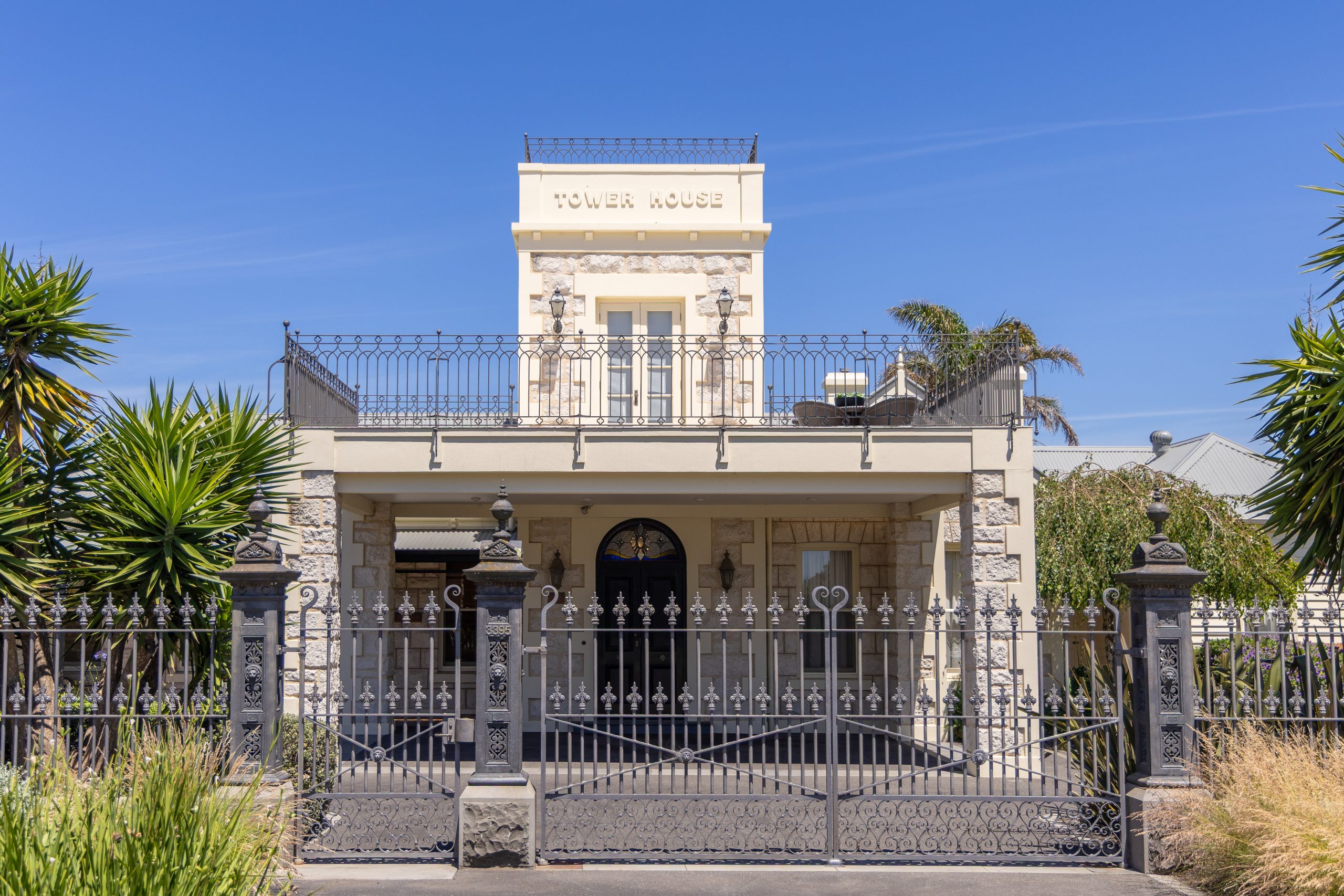The Hottest Business Strategy This Summer Is Buying Crypto
Small companies are raising billions of dollars to buy bitcoin and other, more obscure cryptocurrencies. What could possibly go wrong?
It’s the hottest trade of the summer.
Companies are raising tens of billions of dollars, not to invest in their businesses or hire employees, but to purchase bitcoin and more obscure cryptocurrencies.
A Japanese hotel operator, a French semiconductor manufacturer, a Florida toy maker, a nail-salon chain, an electric-bike maker—they’re all ploughing cash into tokens, helping to send all kinds of digital currencies to record levels. News that a new company plans to buy crypto is enough to send its shares flying—spurring others to consider joining the frenzy.
Since June 1, 98 companies have announced plans to raise over $43 billion to buy bitcoin and other cryptocurrencies, according to Architect Partners, a crypto advisory firm. Nearly $86 billion has been raised for this purpose since the start of the year. That’s more than double the amount of money raised in initial public offerings in the U.S. in 2025, according to Dealogic.
Sceptics say the rush of companies buying crypto is a sign the market is overheating, noting that digital tokens, especially the obscure ones, are notoriously volatile and have uncertain futures.
They scratch their heads about why an investor would buy shares of a company purchasing cryptocurrencies when they can buy them on their own through low-cost exchange-traded funds and other vehicles.
Others note that many of these companies are worth much more than the cryptocurrencies they hold, as if investors are willing to pay $2 for a $1 bill.
That hasn’t stopped big-name bankers, investors and others from jumping in. Mutual-fund giant Capital Group, hedge fund D1 Capital Partners and investment bank Cantor Fitzgerald are among those backing recent efforts by companies to raise huge sums to purchase cryptocurrencies.
Venture ca
The company, worth $26 million on June 27, the Friday before its announcement, is now worth over $2 billion after a surge of more than 800%. Thiel, the tech billionaire known for starting PayPal and Palantir, holds a 9.1% stake in the company, according to a recent filing. He declined to comment.
“If you blink, you miss a couple of these deals,” said Bob Diamond, the former Barclays chief executive.
He should know. Last week, an investment firm Diamond co-founded called Atlas Merchant Capital said it was working with Paradigm, D1, Galaxy, 683 Capital and other big investors to form an entity that will spend $305 million to buy a seven-month-old crypto token called Hype. Diamond will be chairman of the new entity, while Eric Rosengren, the former president of the Boston Fed, is expected to be on its board of directors.
“We think Hype is pretty special,” Diamond says.
The new entrants are following in the footsteps of the company once known as MicroStrategy , whose CEO, Michael Saylor , pioneered the so-called crypto-treasury strategy in 2020. Now known simply as Strategy, it has spent years selling shares and debt to buy bitcoin. It is now worth over $115 billion, up 153% in the past year and 3,371% in the past five years.
Saylor has long implored other companies to buy bitcoin with their excess cash. Most everyone ignored or scoffed at the notion. Using spare cash or raising money to buy volatile cryptocurrencies seemed a dicey proposition. Executives who run companies that sell products and services weren’t supposed to speculate on bitcoin. As of last August, just a handful of companies were using their cash to buy any crypto.
That all changed this year. President Trump has embraced crypto, vowing to make America the “crypto capital of the planet.” He has installed crypto-friendly cabinet members, and Congress has advanced legislation that could make cryptocurrencies part of the mainstream financial system. Trump Media and Technology Group, the social-media firm controlled by the president’s family, has also bought about $2 billion worth of bitcoin and related securities as part of its treasury strategy.
Lately, companies have been taking things further than even Saylor suggested—buying overlooked or unknown digital currencies, not to diversify their holdings but to make outright wagers on risky tokens. Even Saylor is unsure that’s a wise move.
“Applying a treasury strategy to other crypto assets introduces a different—and often speculative—risk profile,” Saylor said in an email. “I haven’t seen a compelling rationale for doing so.”
Some bears are wading into the frenzy, including well-known short seller Jim Chanos, to bet against some of these companies.
“In my three decades experience I have never witnessed a period where investors are willing to pay such large premiums for assets they can readily purchase on their own,” says Michael O’Rourke, chief market strategist at JonesTrading.
Big companies, including tech giants Meta and Microsoft, have resisted the idea, as have their investors. Shareholder proposals at both companies sought to add bitcoin to their balance sheets at recent annual meetings, but were overwhelmingly voted down. Meta and Microsoft’s boards of directors recommended voting against the proposals to invest in bitcoin.
The companies that are taking the plunge are being transparent about their plans to raise cash and put it all in crypto. They argue that they can do things an ETF cannot, such as “stake” tokens, or lock them up for a specified amount of time to earn a return. The companies can also borrow money to buy additional cryptocurrencies, something ETFs also can’t do.
Cryptocurrencies are volatile even in the best of times. If the price of a token plunges after a company has bet the farm, it could be left holding a worthless asset. Staking amplifies the risk, since it means an investor can’t touch the locked-up tokens if they start to fall in value. And then there’s the risk that investors sour on the strategy.
Last week, Volcon, an electric-bike maker based in Austin, Texas, raised $500 million in just seven days to initiate its bitcoin treasury strategy, according to co-CEO Ryan Lane. Shares of Volcon jumped from $9.22 to more than $44 on the day of its announcement as speculators rushed to snap up the stock. Shares have fallen every day since, closing Friday at $13.40.
Two weeks ago, French semiconductor manufacturer Sequans Communications raised $384 million from more than 40 institutional investors to buy bitcoin. The company’s stock jumped 215% that week and peaked at $5.83 a share—but it’s since fallen back down to $1.98.
“What happens in six, 12 or 18 months from now, and instead of the current bull market, we have a bear market?” said Evgeny Gaevoy, the co-founder of crypto market-making firm Wintermute. “A lot of low-effort crypto treasury companies will potentially crash and burn. And a lot of the retail investors that predominantly invested in them will be affected.”
Executives of some of the companies aren’t waiting to see if their plans work out—they’re dumping their personal shares after making the announcements, pocketing millions in the process.
On June 16, for example, SRM Entertainment, a toy-and-souvenir manufacturer in Winter Park, Fla., with a market value of $25 million the Friday before, announced plans to spend $100 million on a cryptocurrency called Tron.
The token purchase is part of a reverse merger between SRM and crypto entrepreneur Justin Sun’s company, also called Tron. SRM’s stock, which traded between 28 cents and $1.45 a share all year, shot up past $9.
Over the next several days, the company’s CEO, Richard Miller, and its chief financial officer, Douglas McKinnon, exercised previously issued stock options to buy a combined 600,000 shares at 56 cents a share, according to data from The Washington Service. They sold a combined $2 million or so of the newly acquired shares. A vice president of the company sold $941,000 worth of stock.
Executives of the company, which has changed its name to Tron Inc. and rang the Nasdaq opening bell on Thursday, declined to comment.
Lately, tiny companies are working with recognised names in finance to raise cash to buy crypto. Among them is Cantor Fitzgerald, run by Howard Lutnick before he became commerce secretary this year and passed the reins to his sons, Brandon and Kyle Lutnick.
Cantor last week said it would form a $5.3 billion bitcoin treasury company with Adam Back, an early cryptographer. It was Cantor’s second multibillion-dollar crypto-treasury SPAC deal in less than three months. The firm also facilitated several other bitcoin treasury deals and acted as an adviser to Trump Media’s plan to buy bitcoin.
For now, many investors are scoring big profits betting on these deals, which remind some of the frenzied SPAC boom of the pandemic era, when established members of the financial world jumped on the wave. Fabio Giorno, an entrepreneur who operates a tutoring business in Toronto, says he has begun to invest in Bitmine and SharpLink Gaming, another ether-focused treasury stock.
He’s done well on the stocks, but says the volatility of the shares shakes him.
“Sometimes it’s a little risky when you walk away from your computer, because you never know what’s going to happen with the news,” he said.
 Copyright 2020, Dow Jones & Company, Inc. All Rights Reserved Worldwide. LEARN MORE
Copyright 2020, Dow Jones & Company, Inc. All Rights Reserved Worldwide. LEARN MORE
A resurgence in high-end travel to Egypt is being driven by museum openings, private river journeys and renewed long-term investment along the Nile.
In the lead-up to the country’s biggest dog show, a third-generation handler prepares a gaggle of premier canines vying for the top prize.
Parts for iPhones to cost more owing to surging demand from AI companies.
Apple has dominated the electronics supply chain for years. No more.
Artificial-intelligence companies are writing huge checks for chips, memory, specialised glass fibre and more, and they have begun to out-duel Apple in the race to secure components.
Suppliers accustomed to catering to Apple’s every whim are gaining the leverage to demand that the iPhone maker pay more.
Apple’s normally generous profit margins will face pressure this year, analysts say, and consumers could eventually feel the hit.
Chief Executive Tim Cook mentioned the problem in a Thursday earnings call, saying Apple was seeing constraints in its chip supplies and that memory prices were increasing significantly.
Those comments appeared to weigh on Apple shares, which traded flat despite blowout iPhone sales and record company profit.
“Apple is getting squeezed for sure,” said Sravan Kundojjala, who analyses the industry for research firm SemiAnalysis.
AI chip leader Nvidia recently became the largest customer of Taiwan Semiconductor Manufacturing , or TSMC, Nvidia Chief Executive Jensen Huang said on a podcast.
Apple had been TSMC’s biggest customer by a wide margin for years. TSMC is the world’s leading manufacturer of advanced chips for AI servers, smartphones and other computing devices.
Spokesmen for Apple and TSMC declined to comment.
The big computers that handle AI tasks don’t look like the smartphones consumers own, but many companies supply components for both. In particular, memory chips are in short supply as companies such as OpenAI, Alphabet’s Google, Meta , Microsoft and others collectively spend hundreds of billions of dollars to build AI computing capacity.
“The rate of increase in the price of memory is unprecedented,” said Mike Howard , an analyst for research firm TechInsights.
That applies both to the flash memory chips that store photos and videos, called NAND, as well as the memory used to run apps quickly, called DRAM.
By the end of this year, the price of DRAM will quadruple from 2023 levels, and NAND will more than triple, estimates TechInsights.
Howard estimates that Apple could pay $57 more for the two types of memory that go into the base-model iPhone 18 due this fall compared with the base model iPhone 17 currently on sale. For a device that retails for $799, that would be a big hit to profit margins.
Apple’s purchasing power and expertise in designing advanced electronics long made it an unrivaled Goliath among the Asian companies that make most of the iPhone’s parts and assemble the device.
Apple spends billions of dollars a year on NAND, for instance, according to people familiar with the figures, likely making it the single biggest buyer globally. Suppliers flocked to win Apple’s business, hoping to leverage its know-how and prestige to attract other customers.
These days, however, “the companies now pushing the boundaries of human‑scale engineering are the ones like Nvidia,” said Ming-chi Kuo, an analyst with TF International Securities.
Demand for AI hardware is poised to keep growing rapidly. Apple’s spending growth is modest in comparison with what is being spent to fill up AI data centers, even though it is breaking records with huge sales of the iPhone 17.
Samsung Electronics and SK Hynix are raising the price of a type of DRAM chip for Apple, according to people familiar with Apple’s supply chain.
Big AI companies pay generously and are willing to lock in supply and make upfront payments, giving the South Korean chip makers leverage against the iPhone maker.
Apple signs long-term contracts for memory, but it has used its heft to squeeze suppliers.
Its contracts have empowered it to negotiate prices as often as weekly, and to even refuse to buy any memory from a supplier if Apple didn’t view the price as favorable, according to people familiar with its memory purchases.
To boost leverage with suppliers, Apple even began stocking more inventory of memory. That was atypical for Cook, who normally cuts inventory to the bone to maximize Apple’s cash flow.
Apple is fighting not only for current deliveries but also for the attention of engineers at suppliers.
Glass scientists who worked on developing the smoothest and lightest smartphone displays are now also spending time on specialised glass for packaging advanced AI processing chips, according to industry executives.
Makers of sensors and other gizmos inside the iPhone are winning new business from AI companies such as OpenAI that are developing their own hardware.
Still, suppliers said they were far from giving up on business with Apple. Working with Apple is a form of education, they said, because it remains one of the most demanding and disciplined customers in the industry.
TSMC, the Taiwanese chip manufacturer, has built successive generations of its most advanced chips with Apple as its lead customer, relying on the big predictable demand for iPhones.
Now that TSMC is doing more business with Nvidia and other AI companies, people with knowledge of the chip supply chain said Apple was exploring whether some lower-end processors could be made by someone other than TSMC.
One of Apple’s biggest profit-spinners is selling extra memory for far more than the memory chips cost the company.
Last fall Apple discontinued the iPhone Pro model with 128 gigabytes of storage.
Customers who want that model must now start at 256 gigabytes and pay $100 more—the type of move that could be repeated this year to help Apple offset higher costs, wrote Craig Moffett, an analyst at Moffett Nathanson, in an investor note.
However, Apple isn’t expected to raise the price of its next iPhone models over similarly equipped iPhone 17s, said Kuo, the analyst.
News Corp, owner of The Wall Street Journal, has a commercial agreement to supply news through Apple services.
From gorilla encounters in Uganda to a reimagined Okavango retreat, Abercrombie & Kent elevates its African journeys with two spectacular lodge transformations.
The pandemic-fuelled love affair with casual footwear is fading, with Bank of America warning the downturn shows no sign of easing.
























